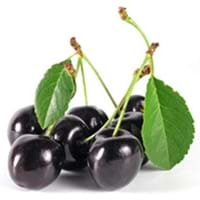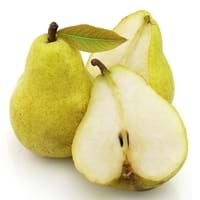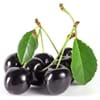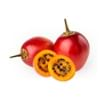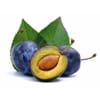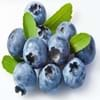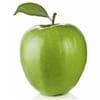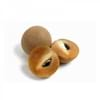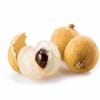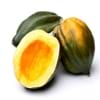Health Benefits
Anti-aging benefits, Anti-inflammatory properties, Arthritis treatment, Cancer prevention, Helps body to rest and sleep, Lower blood pressure, Prevents diabetes, Prevents strokes, Reduces risk of heart disease
Arthritis prevention, Cancer prevention, Gout treatment, Heart care
General Benefits
Fights against infections, Fights Tooth Decay, Helps in weight loss, Relieves pain, Treatment of migraine
Anti-inflammatory properties, Boosts immune system, Controls blood pressure, Controls blood sugar levels, Cures fever, Digestive aid, Sore throat treatment
Skin Benefits
Anti-aging benefits, Fairness, Hydrates skin, Prevents skin cancer, Skin repair, Treatment of acne
Reduces wrinkles, Treatment of acne
Hair Benefits
Cure for hair loss, Increasing hair volume, Prevents hair loss, Strengthening of hair
Promotes longer and healthier hair, Shiny hair
Allergy Symptoms
Abdominal cramps, Anaphylaxis, Diarrhea, Hoarseness, Itchy eyes, Nausea, Pollen allergies, Sore eyes, Vomiting, Watery eyes, Wheezing
Anaphylaxis, Digestive Problems, Itching, Skin Rashes, Swelling
Side Effects
High doses of black cherry bark can be poisonous and even fatal.
Allergic reaction
Lactating Women
Not Available
Yes
Best Time to Eat
Best if taken as a breakfast (or empty stomach), Don't eat after meal, Morning time (before lunch)
As a snack in the late afternoon, Don't consume at night and before bed, Eat the fresh ones, avoid mixing with any other foods, don't eat after meal., Morning time (before lunch)
Vitamin B1 (Thiamin)
Not Available
Vitamin B5 (Pantothenic Acid)
Vitamin B6 (Pyridoxin)
Not Available
Vitamin B9 (Folic acid)
Not Available
Vitamin C (Ascorbic Acid)
Not Available
Vitamin E (Tocopherole)
Not Available
Vitamin K (Phyllochinone)
Not Available
Lutein+Zeaxanthin
Not Available
Calories in Fresh Fruit with Peel
Calories in Fresh Fruit without Peel
Not Available
Not Available
Calories in Frozen Form
Not Available
Not Available
Calories in Dried Form
Not Available
Not Available
Calories in Canned Form
Not Available
Not Available
Calories in Juice
Not Available
Calories in Jam
Not Available
Calories in Pie
Not Available
Season
Summer
Autumn, Summer, Winter
Varieties
alabamensis, capuli , eximia and hirsuta
Green Anjou, Red Anjou, Bartlett, Red Bartlett, Bosc, Comice, Concorde, Forelle, Seckel and Starkrimson
Inside Color
Maroon
White
Taste
Sweet-Sour
Crunchy, Sweet
Origin
North America
China, Japan
Soil Type
Not Available
Clayey, Loamy, Sandy
Climatic Conditions
Cold
Cold, Hot, Without frosts
Facts about
- Black cherry is deciduous tree that belongs to the family of roses.
- Some foods made from Black Cherry fruit include jelly and wine.
- Inner bark of black cherry is used in the manufacture of cough syrup.
- The first pear tree was planted in North America in 1620.
- The Chinese considered the pear fruit to be a symbol of immortality.
- This fruit was used as a natural remedy against nausea in ancient Greece.
Top Producer
Turkey
China
Other Countries
Austria, Bulgaria, Chile, China, France, Greece, Iran, Italy, Macedonia, Poland, Romania, Russia, Serbia, Spain, Syria, Ukraine, United States of America, Uzbekistan
Argentina, Belgium, India, Italy, Japan, South Africa, Spain, Turkey, United States of America
Top Importer
France
Europe
Top Exporter
Turkey
China
Botanical Name
Prunus Serotina
Pyrus communis
Synonym
wild black cherry, rum cherry and mountain black cherry
Not Available
Subkingdom
Tracheobionta
Tracheobionta
Division
Magnoliophyta
Magnoliophyta
Class
Magnoliopsida
Magnoliopsida
Species
P. serotina
P. communis
Generic Group
Cherry
Rose
Difference Between Black cherry and Pear
We might think that Black cherry and Pear are similar with respect to nutritional value and health benefits. But the nutrient content of both fruits is different. Black cherry and Pear Facts such as their taste, shape, color, and size are also distinct. The difference between Black cherry and Pear is explained here.
The amount of calories in 100 gm of fresh Black cherry and Pear with peel is 63.00 kcal and 57.00 kcal and the amount of calories without peel is Not Available and Not Available respectively. Thus, Black cherry and Pear belong to Low Calorie Fruits and Low Calorie Fruits category.These fruits might or might not differ with respect to their scientific classification. The order of Black cherry and Pear is Rosales and Rosales respectively. Black cherry belongs to Rosaceae family and Pear belongs to Rosaceae family. Black cherry belongs to Prunus genus of P. serotina species and Pear belongs to Pyrus genus of P. communis species. Beings plants, both fruits belong to Plantae Kingdom.
